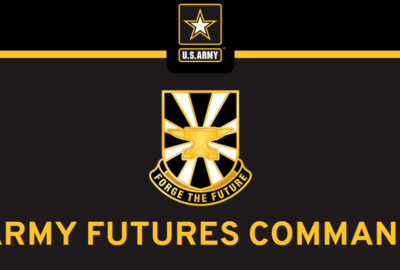Best listening experience is on Chrome, Firefox or Safari. Subscribe to Federal Drive’s daily audio interviews on Apple Podcasts or PodcastOne.
Army Futures Command is in charge of being the most technologically advanced component of the service. The command is in charge of modernizing the force, and prioritizing a handful of futuristic programs. But, the Austin-based organization isn’t only about advancing weapons systems, it’s trying to modernize its workforce, too.
In August, the Army’s Artificial Intelligence Task Force announced it was making AI education available to all Army soldiers and civilian employees.
The project falls in line with the Defense Department’s total approach to AI, which is to make it something like the internet — ingrained in our everyday lives and everyone knows some basic skills.
The point is for the Army to have a tech-ready and AI-enabled culture.
“All of our soldiers eventually will be involved on AI-enabled systems and capabilities,” Doug Matty, director of AI capabilities at the Army’s AI Task Force, told Federal News Network. “What we’re trying to do is start AI training at the top and go down down or just do a bottom up; we’re trying to blend it across all the different layers where it can actually impact your Army in the quickest fashion.”
There are three tiers the Army is educating its workforce in AI.
“The initial effort that we put underway was to get after developing and educating the leaders across the Army,” Matty said. “We did that by using a couple of different executive education style courses and curricula. For AI, one of the fundamental efforts that you have to have is data and data management. We lead off with a short course that engaged Army senior leaders to walk them through the first principles of enterprise data management.”
The Army is now conducting a senior leader pilot course on data-driven leadership. The course teaches soldiers what techniques and tools to use and what to expect from projects.
The second tier is for AI-savvy soldiers or those who are interested in AI development — what the Army calls AI professionals. For those employees, the Army is working with Carnegie Mellon University to create curriculum for the courses. The school is one of the top universities for AI.
“It’s a fairly unique individual that you can find that can do all of the requisite skill sets that are required to be proficient in this area,” Matty said. “We have one program that’s focused mostly on the data analytics side of it. There’s a number of military and civilians that are going through a 22-month program to develop them as data analysts. Then complimentary to that is another program that’s a computational data science program.”
As they work through the program, the Army will pair data analysts with data scientists to work in development labs, modernization efforts or on operational issues.
Finally, the Army is developing what Matty calls the AI technicians. These are people who will use AI every day, but don’t need to know the nitty gritty details.
“It’s basically comprised of about a one-year intensive fellowship,” Matty said. “We bring in enlisted, warrant officers, and commissioned officers. We’re really trying to kind of spread it around the hierarchy of the military. During that year, they are given extensive education and opportunity. The program focuses on cloud architecture and how to do cloud solutions.”
Technicians will also be able to teach the course themselves once they are finished, helping to spread AI functionality.
“You start to see the scaling factor kick in as this ‘train the trainer’ model starts to be implemented, because each AI technician has the ability to train nearly 100 people over the course of the next year,” Matty said.
Copyright
© 2024 Federal News Network. All rights reserved. This website is not intended for users located within the European Economic Area.
